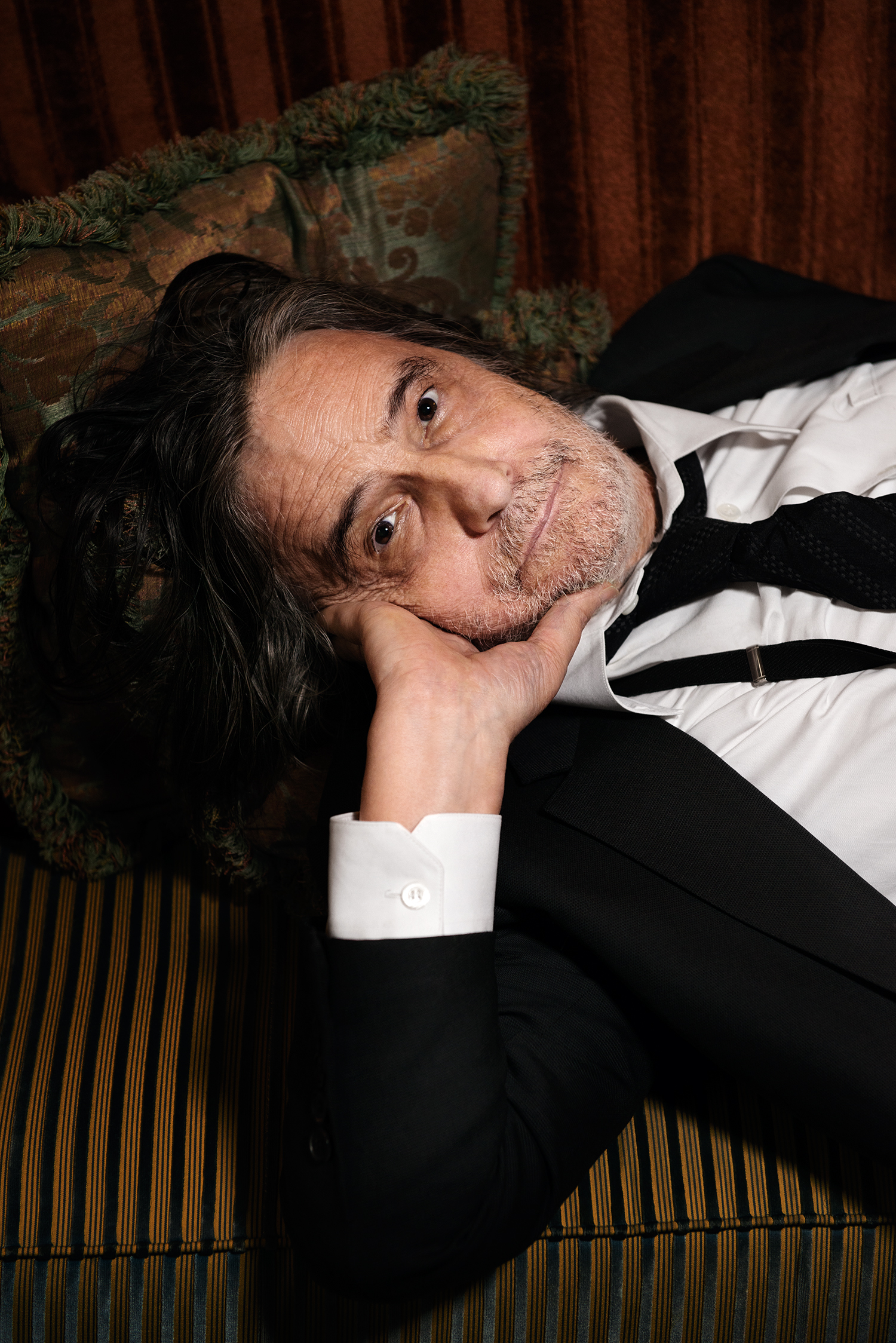Purple Magazine
— F/W 2014 issue 22
Jean-Pierre Léaud
 Portrait by Eva Ionesco
Portrait by Eva Ionesco
Fifty-six years after his debut in François Truffaut’s cult film The 400 Blows, Jean-Pierre Léaud, the 70-year-old living legend of the nouvelle Vague, has agreed to this rare interview. He is the face of avant-garde cinema in France, never compromising his talent and living in a poetic and unpredictable way, blurring the lines between his life and his films.
His latest role is in Rosa Mystica, an 18-minute film directed by Eva Ionesco and written by the French novelist Simon Liberati. The two met up with him in Paris to speak about his life.
interview by SIMON LIBERATI
portrait by EVA IONESCO at L’Hôtel, rue des Beaux Arts, Paris
I am to meet Jean-Pierre Léaud at a hotel on the Rue des Beaux-Arts in Paris. It is where Oscar Wilde died, under the name Sébastien…